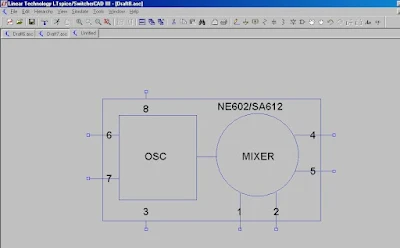
Cory, WA3UVV, sent in this nice article about a beloved vacuum tube:
Say "73" to the 6L6
Sometime in the spring of this year, the 6L6 will celebrate it's 73rd birthday. Originally conceived of a year earlier by engineers at General Electric, it represented a new design in receiving tubes (more about that later) and used the recently developed metal case(envelope), instead of glass. RCA was licensed to manufacture it and the first ones hit the market in 1936.
Originally thought of for audio use, it could give you 30+ watts of RF if used in a single-tube oscillator circuit. Not bad for a "receiving" tube - a general name used for things that were "low power" when thought of in comparison to broadcast radio transmitter power levels. It quickly became the most popular tube for ham transmitters for many years to come.
In a fairly short period of time, the 6L6 was also produced in a variety of glass envelopes. In fact the basic 6L6 went through many changes and upgrades as it went through life. RCA moved the plate connection to the top and the 807 was born. This power house, when given 600 volts on the plate could manage 60 watts without breaking a sweat. So much in use, the term "807" was once a popular ham nickname for beer. Technology marches on, and eventually the 807 was succeeded by the shorter 6146. The 6L6 saw it's life increased as the 6LQ6. Both of these tubes were quite popular, as well. Used in sets in kilowatt-level amplifiers with over 1,000 volts on the plates, they also showed up in pairs as finals in hybrid rigs in the 70's. I have a Handbook from 60+ years ago with a circuit for a one-tube 6146-based, 75 watt crystal-controlled transmitter. Don't try that with anything less than a FT-243 crystal...
The 6L6 also had lower rated siblings, the 6V6 (popular with Novices and used in some commercial designs like the Ameco AC-1 transmitter kit) and the 6K6 (very QRP-friendly). "Circle of Life" fans will note that 6L6's still enjoy use everyday, although primarily in audio amplifiers for those who like the glow and "warmth" of the the sound. You can find them at music stores for $50 a pair and up or at hamfests and Ebay for much more reasonable prices.
While I don't know the exact date the 6L6 arrived, March 14th is the 73rd day of the year. There's still time to celebrate the 6L6 by building a rig and putting it on the air that weekend. A straight key is strongly suggested. A quick perusal of the League's searchable QST database (you are a member, aren't you?) will turn up many design ideas and possibilities. Even if you don't have a spare 6L6, 6V6, 6K6, etc. to play along, they're easy to find. (In fact, I'm sure I have a spare for someone who wants to build his own rig in the coming weeks.)
Power supply? A 6 volt filament supply is easy - you can even use some wall warts for that. Coming up with 150 to 600 volts may be a bit more daunting, but if you have a tube-based receiver (makes a nice companion) you can carefully borrow some B+ for a low-power version. Or, go to the "everything we sell is a dollar, so please don't ask how much it is" store and pick up some 9 volt batteries. If you buy 15 packs of 2, you can click them together and come up with 270 volts for (wait for it) $15. Hey, don't touch the ends to see if it's hot - it's still 270 volts and is dangerous if not respected! Pick up 15 more packs and you'll have a real rock crusher on the air.
If you've never gone on the air with tubes, here's a fantastic opportunity to mark "73 to the 6L6 Day" (or something like that). Remember, real radios glow.
 I think this new rig is really interesting. NS stands for "No Simpler." It has only 14 parts. The coils are etched into the PC board (see above) -- I've never seen that before in an HF rig. It runs Class E and puts out 5 watts! The Designer is David Cripe, NM0S, and a kit is available from the 4 States QRP Club for only $30. Look here for more details:
I think this new rig is really interesting. NS stands for "No Simpler." It has only 14 parts. The coils are etched into the PC board (see above) -- I've never seen that before in an HF rig. It runs Class E and puts out 5 watts! The Designer is David Cripe, NM0S, and a kit is available from the 4 States QRP Club for only $30. Look here for more details:







